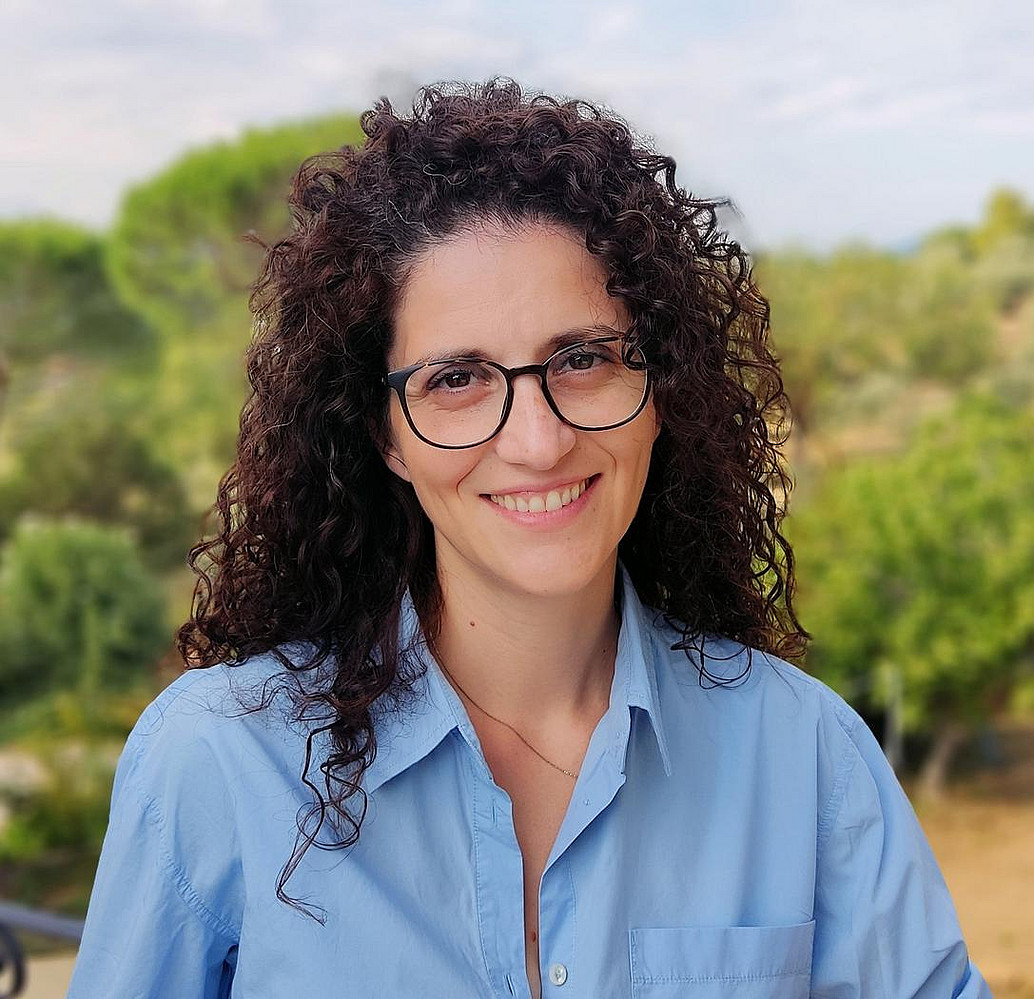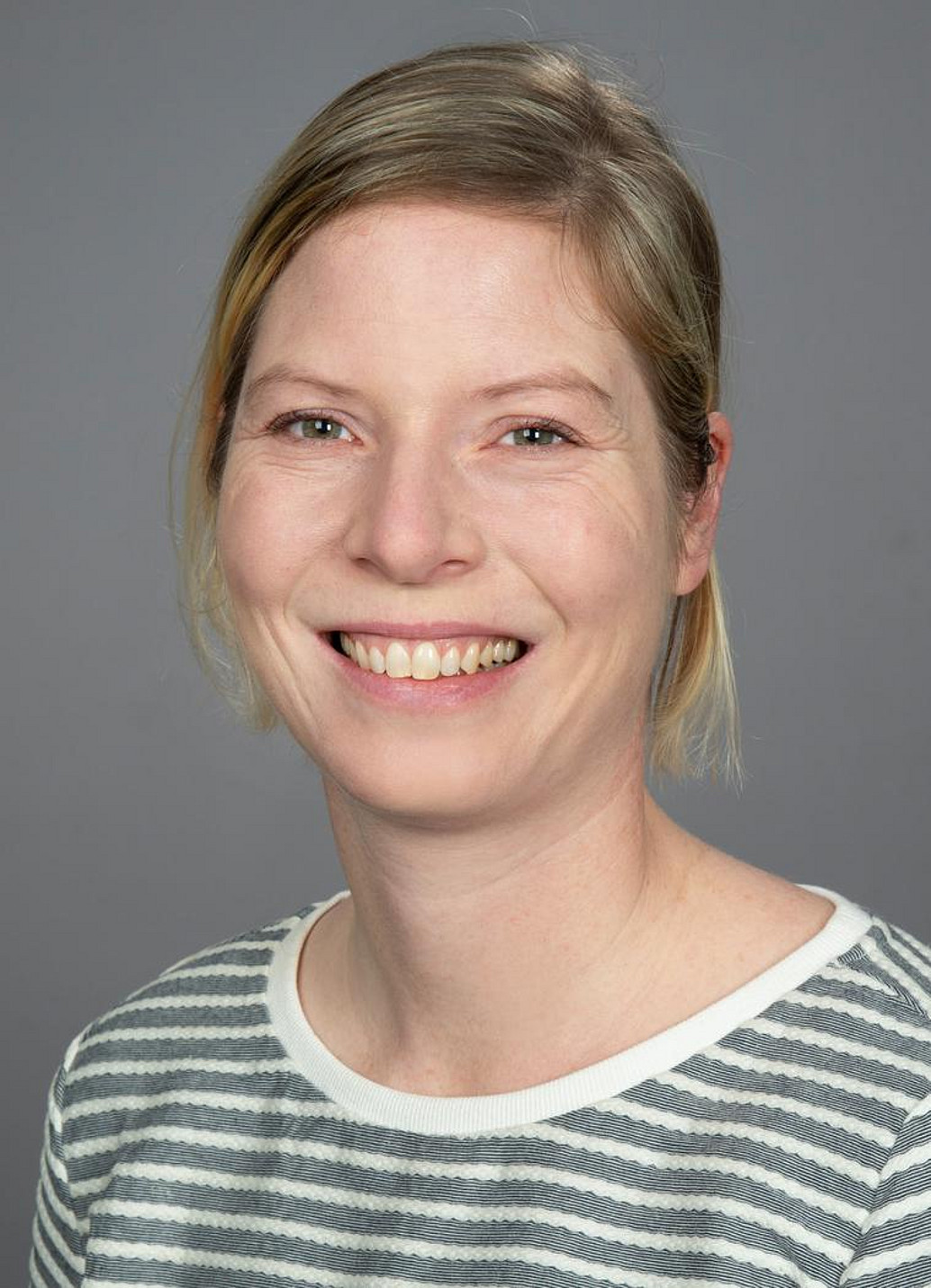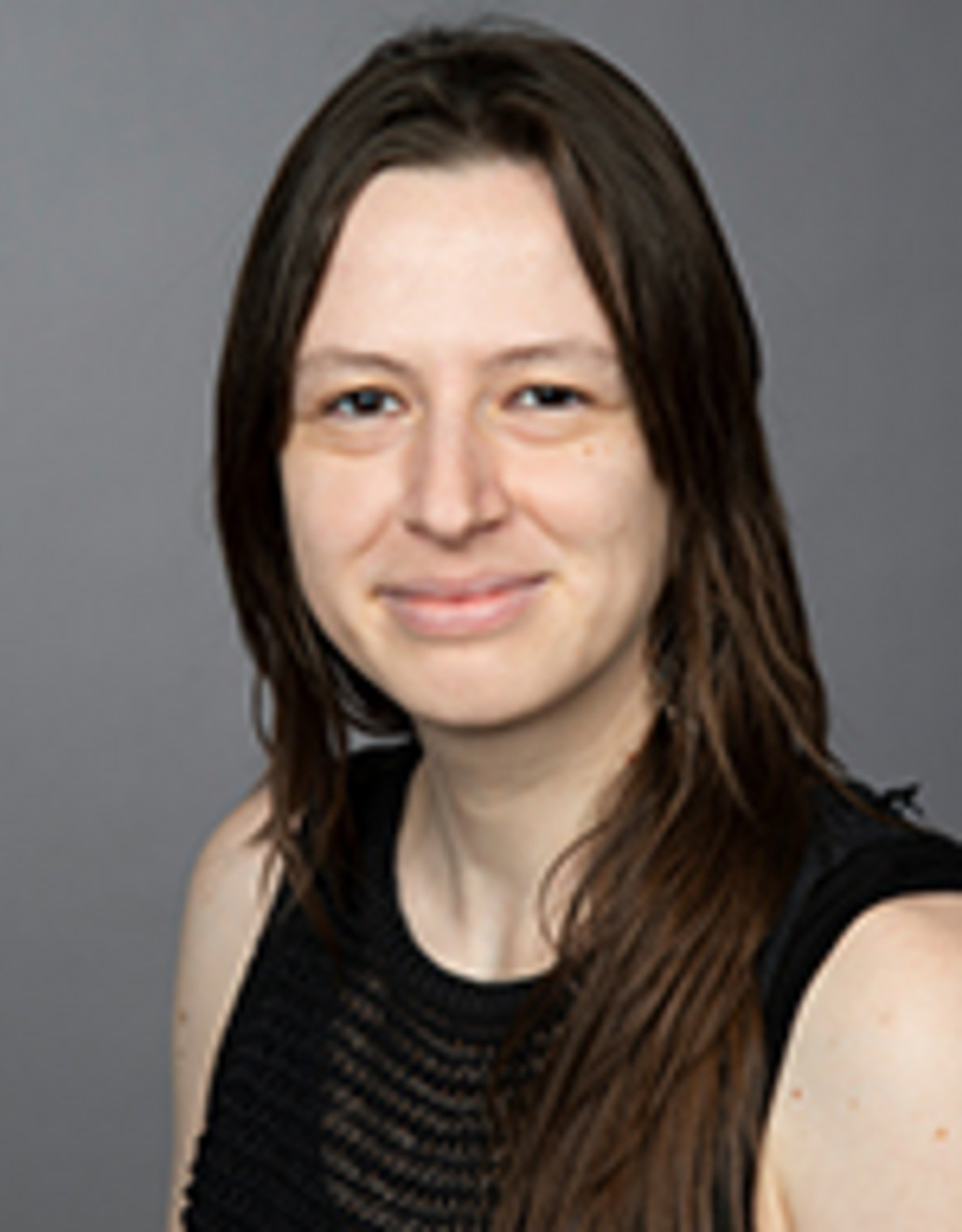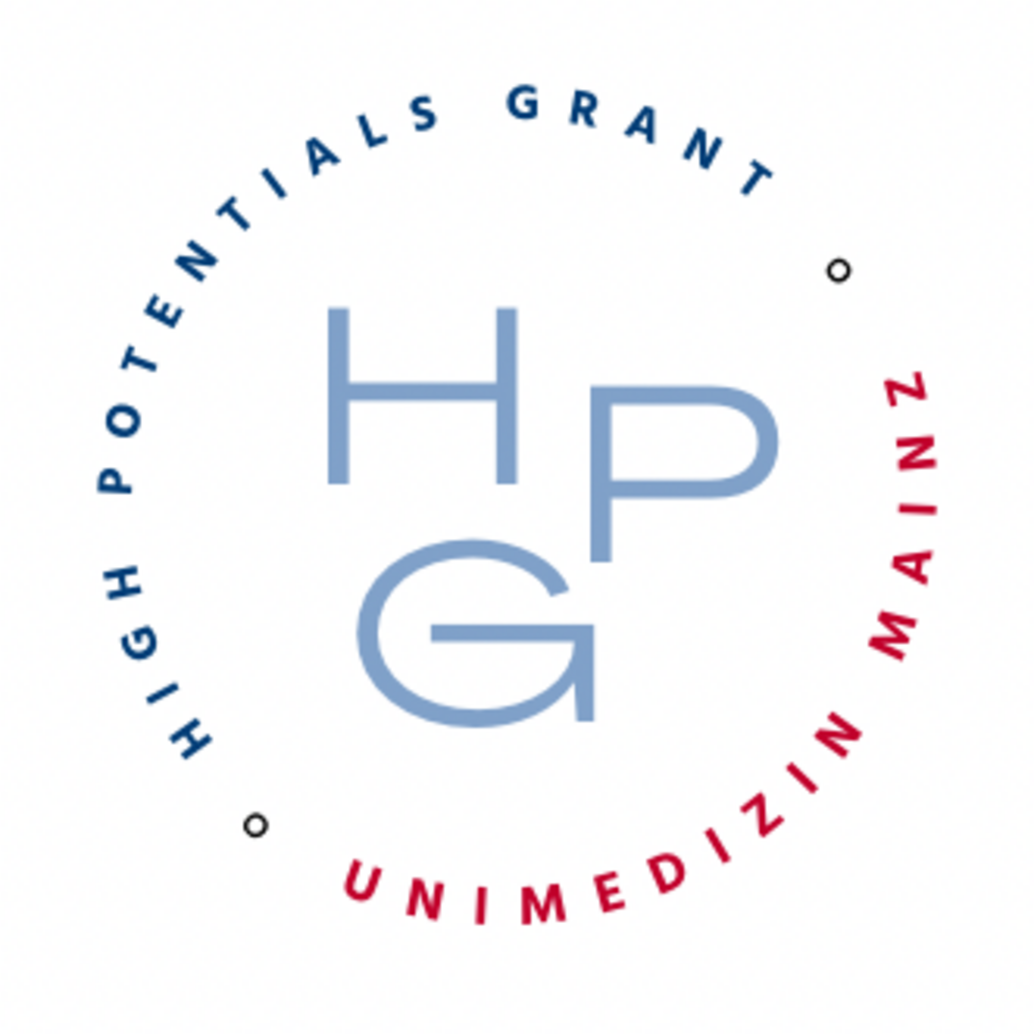High Potentials Grant - Fellows und Projects
The High Potentials Grant Fellows at the University Medical Center Mainz are funded for a period of 3 years (medical scientists, PhD) or 4 years (clinician scientists, MD) with a total budget of €300,000.
In the following, we present the previous fellows and their projects in brief profiles.
If you are interested in nominating yourself or someone else as a candidate, you will find all information regarding nomination criteria, procedures, and required documents on this page.
2022

The epigenetics of degenerative rare diseases
58 million people worldwide are diagnosed with a rare developmental disorder (DD). While the diagnostic path is massively improving, the development of therapies and the understanding of the molecular mechanisms leading to a certain disease state are often still a long way off. The most enriched class of mutations in DD are chromatin machinery genes, as for the Basilicata-Akhtar syndrome. DNA and its accessory factors make up chromatin, which helps to pack the genome while also being subjected to a plethora of regulatory mechanisms that ultimately affect gene expression. Chromatin is largely studied in the context of processes occurring in the cell nucleus. However, it can also reflect on organelle communication (e.g. plasma membrane, mitochondria, ER, lysosomes), metabolism and finally on cellular interactions with the neighboring environment, aside from the direct modulation of gene expression. As part of the High Potential Grant, I will look at how mutations in chromatin-modifying complexes lead to common "rewiring" of organelles, which ultimately could explain the higher susceptibility to cardiometabolic and neurodegenerative comorbidities observed in DD patients. I will employ a multidisciplinary approach looking at underlying molecular and cellular mechanisms, through the combination of embryonic stem cell culture, patterned organoids and in vivo models. The methods include CRISPR engineering, state-of-the-art multiomics, high-resolution microscopy and functional assays.
Mentor: Univ.-Prof. Dr. med. Susann Schweiger, Institute for Human Genetics
Publications:
1. Basilicata MF, Bruel A-L, Semplicio G, Valsecchi CIK, Aktaş T, Duffourd Y, Rumpf T, Morton J, Bache I, Szymanski WG, Gilissen C, Vanakker O, Õunap K, Mittler G, van der Burgt I, El Chehadeh S, Cho MT, Pfundt R, Tan TY, Kirchhoff M, Menten B, Vergult S, Lindstrom K, Reis A, Johnson DS, Fryer A, McKay V, DDD Study, Fisher RB, Thauvin-Robinet C, Francis D, Roscioli T, Pajusalu S, Radtke K, Ganesh J, Brunner HG, Wilson M, Faivre L, Kalscheuer VM, Thevenon J, Akhtar A. 2018. De novo mutations in MSL3 cause an X-linked syndrome marked by impaired histone H4 lysine 16 acetylation. Nat. Genet. 50:1442–1451. doi: 10.1038/s41588-018-0220-y
2. Valsecchi CIK*, Basilicata MF*, Georgiev P, Gaub A, Seyfferth J, Kulkarni T, Panhale A, Semplicio G, Manjunath V, Holz H, Dasmeh P, Akhtar A. 2021. RNA nucleation by MSL2 induces selective X chromosome compartmentalization. Nature. 589:137–142. doi: 10.1038/s41586-020-2935-z
3. Basilicata MF, Frank M, Solter D, Brabletz T, Stemmler MP. 2016. Inappropriate cadherin switching in the mouse epiblast compromises proper signaling between the epiblast and the extraembryonic ectoderm during gastrulation. Sci. Rep. 6:26562. doi: 10.1038/srep26562
4. Basilicata MF#, Keller Valsecchi CI#. 2021. The good, the bad, and the ugly: Evolutionary and pathological aspects of gene dosage alterations. PLoS Genet. 17(12):e1009906. doi: 10.1371/journal.pgen.1009906.
5. Samata M, Alexiadis A, Richard G, Georgiev P, Nuebler J, Kulkarni T, Renschler G, Basilicata MF, Zenk FL, Shvedunova M, Semplicio G, Mirny L, Iovino N, Akhtar A. 2020. Intergenerationally Maintained Histone H4 Lysine 16 Acetylation Is Instructive for Future Gene Activation. Cell. 182: 127-144.e23. doi: 10.1016/j.cell.2020.05.026
* Shared first authorship; # Co-corresponding authorship
Further information: will follow soon
58 million people worldwide are diagnosed with a rare developmental disorder (DD). While the diagnostic path is massively improving, the development of therapies and the understanding of the molecular mechanisms leading to a certain disease state are often still a long way off. The most enriched class of mutations in DD are chromatin machinery genes, as for the Basilicata-Akhtar syndrome. DNA and its accessory factors make up chromatin, which helps to pack the genome while also being subjected to a plethora of regulatory mechanisms that ultimately affect gene expression. Chromatin is largely studied in the context of processes occurring in the cell nucleus. However, it can also reflect on organelle communication (e.g. plasma membrane, mitochondria, ER, lysosomes), metabolism and finally on cellular interactions with the neighboring environment, aside from the direct modulation of gene expression. As part of the High Potential Grant, I will look at how mutations in chromatin-modifying complexes lead to common "rewiring" of organelles, which ultimately could explain the higher susceptibility to cardiometabolic and neurodegenerative comorbidities observed in DD patients. I will employ a multidisciplinary approach looking at underlying molecular and cellular mechanisms, through the combination of embryonic stem cell culture, patterned organoids and in vivo models. The methods include CRISPR engineering, state-of-the-art multiomics, high-resolution microscopy and functional assays.
Mentor: Univ.-Prof. Dr. med. Susann Schweiger, Institute for Human Genetics
Publications:
1. Basilicata MF, Bruel A-L, Semplicio G, Valsecchi CIK, Aktaş T, Duffourd Y, Rumpf T, Morton J, Bache I, Szymanski WG, Gilissen C, Vanakker O, Õunap K, Mittler G, van der Burgt I, El Chehadeh S, Cho MT, Pfundt R, Tan TY, Kirchhoff M, Menten B, Vergult S, Lindstrom K, Reis A, Johnson DS, Fryer A, McKay V, DDD Study, Fisher RB, Thauvin-Robinet C, Francis D, Roscioli T, Pajusalu S, Radtke K, Ganesh J, Brunner HG, Wilson M, Faivre L, Kalscheuer VM, Thevenon J, Akhtar A. 2018. De novo mutations in MSL3 cause an X-linked syndrome marked by impaired histone H4 lysine 16 acetylation. Nat. Genet. 50:1442–1451. doi: 10.1038/s41588-018-0220-y
2. Valsecchi CIK*, Basilicata MF*, Georgiev P, Gaub A, Seyfferth J, Kulkarni T, Panhale A, Semplicio G, Manjunath V, Holz H, Dasmeh P, Akhtar A. 2021. RNA nucleation by MSL2 induces selective X chromosome compartmentalization. Nature. 589:137–142. doi: 10.1038/s41586-020-2935-z
3. Basilicata MF, Frank M, Solter D, Brabletz T, Stemmler MP. 2016. Inappropriate cadherin switching in the mouse epiblast compromises proper signaling between the epiblast and the extraembryonic ectoderm during gastrulation. Sci. Rep. 6:26562. doi: 10.1038/srep26562
4. Basilicata MF#, Keller Valsecchi CI#. 2021. The good, the bad, and the ugly: Evolutionary and pathological aspects of gene dosage alterations. PLoS Genet. 17(12):e1009906. doi: 10.1371/journal.pgen.1009906.
5. Samata M, Alexiadis A, Richard G, Georgiev P, Nuebler J, Kulkarni T, Renschler G, Basilicata MF, Zenk FL, Shvedunova M, Semplicio G, Mirny L, Iovino N, Akhtar A. 2020. Intergenerationally Maintained Histone H4 Lysine 16 Acetylation Is Instructive for Future Gene Activation. Cell. 182: 127-144.e23. doi: 10.1016/j.cell.2020.05.026
* Shared first authorship; # Co-corresponding authorship
Further information: will follow soon

Tracking down depression: Unravelling the network changes causing depression
Depression is ranked as one of the world's most burdensome diseases affecting millions of people. In the brain of depressed people, changes in activity affect almost all areas. But what happens in the brain when a depression develops? Which changes of activity happen first and how much needs to change before we feel depressed?
To study these questions, we will use chronic two-photon calcium imaging in mice to record and track the activity of hundreds of neurons over many weeks. Two-photon calcium imaging refers to a technique, widely used in systems neuroscience, in which neurons express a genetically-encoded calcium indicator in the soma and neurites such that their fluorescence signal reflects activity. This will allow us to study the changes in neural circuit activity with single-cell resolution during the development and successive treatment of depression.
After monitoring the changes in cortical networks and how they drive the depressive phenotype, we want to understand which of these altered activity patterns are reversed when we take antidepressants. Here, we will use the most commonly described antidepressant in Germany Citalopram, a selective serotonin reuptake inhibitor (SSRI). Tracking the activity changes across cortex during the treatment with the SSRI whilst monitoring the severity of the depressive phenotype will help us to better understand how SSRIs work and which changes in activity are crucial to maintain a depression or alleviate the symptoms. Understanding exactly which changes in the brain drive the depressive phenotype will help us to find a more effective treatment of the disease.
Most Relevant Publications
1. Buetfering C, Zhang Z, Pitsiani M, Smallridge J, Boven E, McElligott S, Häusser M (2022) Behaviorally relevant decision coding by layer 2/3 neurons in primary somatosensory cortex. Nat Neurosci. 26(1):173.
2. Buetfering C, Allen K, Monyer H (2014) Parvalbumin-expressing interneurons provide grid-cell driven recurrent inhibition in the medial entorhinal cortex. Nat Neurosci. 17(5):710-8.
3. Kätzel D, Zemelman BV, Buetfering C, Wölfel M, Miesenböck G (2011) The columnar and laminar organization of inhibitory connections to neocortical excitatory cells. Nat Neurosci. 14(1):100-7.
4. Steinmetz NA, Buetfering C, …, Harris KD (2017) Aberrant Cortical Activity in Multiple GCaMP6-Expressing Transgenic Mouse Lines. eNeuro 4, doi:10.1523/ENEURO.0207-17.2017.
Further information
https://www.unimedizin-mainz.de/pathophysiologie/ag-buetfering.html?L=0
Depression is ranked as one of the world's most burdensome diseases affecting millions of people. In the brain of depressed people, changes in activity affect almost all areas. But what happens in the brain when a depression develops? Which changes of activity happen first and how much needs to change before we feel depressed?
To study these questions, we will use chronic two-photon calcium imaging in mice to record and track the activity of hundreds of neurons over many weeks. Two-photon calcium imaging refers to a technique, widely used in systems neuroscience, in which neurons express a genetically-encoded calcium indicator in the soma and neurites such that their fluorescence signal reflects activity. This will allow us to study the changes in neural circuit activity with single-cell resolution during the development and successive treatment of depression.
After monitoring the changes in cortical networks and how they drive the depressive phenotype, we want to understand which of these altered activity patterns are reversed when we take antidepressants. Here, we will use the most commonly described antidepressant in Germany Citalopram, a selective serotonin reuptake inhibitor (SSRI). Tracking the activity changes across cortex during the treatment with the SSRI whilst monitoring the severity of the depressive phenotype will help us to better understand how SSRIs work and which changes in activity are crucial to maintain a depression or alleviate the symptoms. Understanding exactly which changes in the brain drive the depressive phenotype will help us to find a more effective treatment of the disease.
Most Relevant Publications
1. Buetfering C, Zhang Z, Pitsiani M, Smallridge J, Boven E, McElligott S, Häusser M (2022) Behaviorally relevant decision coding by layer 2/3 neurons in primary somatosensory cortex. Nat Neurosci. 26(1):173.
2. Buetfering C, Allen K, Monyer H (2014) Parvalbumin-expressing interneurons provide grid-cell driven recurrent inhibition in the medial entorhinal cortex. Nat Neurosci. 17(5):710-8.
3. Kätzel D, Zemelman BV, Buetfering C, Wölfel M, Miesenböck G (2011) The columnar and laminar organization of inhibitory connections to neocortical excitatory cells. Nat Neurosci. 14(1):100-7.
4. Steinmetz NA, Buetfering C, …, Harris KD (2017) Aberrant Cortical Activity in Multiple GCaMP6-Expressing Transgenic Mouse Lines. eNeuro 4, doi:10.1523/ENEURO.0207-17.2017.
Further information
https://www.unimedizin-mainz.de/pathophysiologie/ag-buetfering.html?L=0

Extracellular vesicles mediated communication in the aging bone marrow
Within the bone marrow (BM), the hematopoietic system is responsible for the continuous replenishment of the different blood components. During aging, the hematopoietic stem cells (HSCs) undergo a series of changes that ultimately lead to reduced functionality. This results in unbalanced hematopoiesis that contributes to a number of age-associated pathologies, including immune senescence and chronic inflammation.
Decline of the homeostasis of HSCs with aging is the result of both alterations at cell intrinsic level and alterations in the crosstalk between HSCs and cells of the BM microenvironment (BMM). Extracellular vesicles (EVs) are particles that facilitate the exchange of very complex messages across cells. According to recent observations, EVs are an important component of the senescent-associated secretory phenotype (SASP) which itself is a distinctive secretory profile specific of senescent cells. While transient senescence is considered beneficial for the maintenance of the homeostasis of a tissue, chronic senescence has been associated with the development of age-associated pathologies.
In this project, we propose to characterize changes in EV shedding and composition that might occur when the cells of the BMM acquire a senescent phenotype and to investigate the contribution of these EVs to aging of the hematopoietic system, unbalanced hematopoiesis . The results obtained will provide useful insight on how EV mediated communication contributes to the aging of the hematopoietic system and whether this process can be modified to achieve resilience to aging.
Mentor: Univ.-Prof. Dr. med. Wolfram Ruf, Center for Thrombosis and Hemostasis (CTH)
Publications:
1. Karantanou C., Minciacchi V.R., Kumar R., Zanetti C., Tascher G., Tertel T., Covarrubias-Pinto A., Bankov K., Divieti-Pajevic P., McEwan D.G., Giebel B., Münch G., Dikic I., Krause D.S. “Impact of mesenchymal stromal cell-derived vesicular cargo on B-cell acute lymphoblastic leukemia progression.” Blood Adv. 2023 Apr 11;7(7):1190-1203.
2. Zanetti C., Kumar R., Ender J., Godavarthy P.S., Hartmann M., Hey J., Breuer K., Weissenberger E.S., Minciacchi V.R., Karantanou C., Gu Z., Roberts K.G., Metzler M., Stock W., Mullighan C.G., Bloomfield C.D., Filmann N., Bankov K., Hartmann S., Hasserjian R.P., Cousins A.F., Halsey C., Plass C., Lipka D.B., Krause D.S. “The age of the bone marrow microenvironment influences B-cell acute lymphoblastic leukemia progression via CXCR5-CXCL13.” Blood. 2021 Nov 11;138(19):1870-1884.
3. Yekula A.*, Minciacchi V.R.*, Morello M., Shao H., Park Y., Zhang X., Muralidharan K., Freeman M.R., Weissleder R., Lee H., Carter B., Breakefield X.O., Di Vizio D., Balaj L. “Large and small extracellular vesicles released by glioma cells in vitro and in vivo.” J Extracell Vesicles 2019 Nov 27;9(1):1689784. *Equally contributing authors.
4. Minciacchi V.R., Spinelli C., Reis-Sobreiro M., Cavallini L., You S., Zandian M., Li X., Chiarugi P., Adam R.M., Posadas E.M., Viglietto G., Freeman M.R., Cocucci E., Bhowmick N.A., Di Vizio D. “Prostate fibroblast reprogramming induced by large oncosomes is mediated by MYC.” Cancer Res. 2017 1;77(9):2306-2317.
5. Vagner T.*, Spinelli C.*, Minciacchi V.R., Balaj L., Zandian M., Conley A., Zijlstra A., Freeman M.R., Demichelis F., De S., Posadas E.M., Tanaka H., Di Vizio D. “Large extracellular vesicles carry most of the tumour DNA circulating in prostate cancer patient plasma.” J Extracell Vesicles 2018 Aug 7;7(1):1505403. *Equally contributing authors.
Further information: will follow soon
Within the bone marrow (BM), the hematopoietic system is responsible for the continuous replenishment of the different blood components. During aging, the hematopoietic stem cells (HSCs) undergo a series of changes that ultimately lead to reduced functionality. This results in unbalanced hematopoiesis that contributes to a number of age-associated pathologies, including immune senescence and chronic inflammation.
Decline of the homeostasis of HSCs with aging is the result of both alterations at cell intrinsic level and alterations in the crosstalk between HSCs and cells of the BM microenvironment (BMM). Extracellular vesicles (EVs) are particles that facilitate the exchange of very complex messages across cells. According to recent observations, EVs are an important component of the senescent-associated secretory phenotype (SASP) which itself is a distinctive secretory profile specific of senescent cells. While transient senescence is considered beneficial for the maintenance of the homeostasis of a tissue, chronic senescence has been associated with the development of age-associated pathologies.
In this project, we propose to characterize changes in EV shedding and composition that might occur when the cells of the BMM acquire a senescent phenotype and to investigate the contribution of these EVs to aging of the hematopoietic system, unbalanced hematopoiesis . The results obtained will provide useful insight on how EV mediated communication contributes to the aging of the hematopoietic system and whether this process can be modified to achieve resilience to aging.
Mentor: Univ.-Prof. Dr. med. Wolfram Ruf, Center for Thrombosis and Hemostasis (CTH)
Publications:
1. Karantanou C., Minciacchi V.R., Kumar R., Zanetti C., Tascher G., Tertel T., Covarrubias-Pinto A., Bankov K., Divieti-Pajevic P., McEwan D.G., Giebel B., Münch G., Dikic I., Krause D.S. “Impact of mesenchymal stromal cell-derived vesicular cargo on B-cell acute lymphoblastic leukemia progression.” Blood Adv. 2023 Apr 11;7(7):1190-1203.
2. Zanetti C., Kumar R., Ender J., Godavarthy P.S., Hartmann M., Hey J., Breuer K., Weissenberger E.S., Minciacchi V.R., Karantanou C., Gu Z., Roberts K.G., Metzler M., Stock W., Mullighan C.G., Bloomfield C.D., Filmann N., Bankov K., Hartmann S., Hasserjian R.P., Cousins A.F., Halsey C., Plass C., Lipka D.B., Krause D.S. “The age of the bone marrow microenvironment influences B-cell acute lymphoblastic leukemia progression via CXCR5-CXCL13.” Blood. 2021 Nov 11;138(19):1870-1884.
3. Yekula A.*, Minciacchi V.R.*, Morello M., Shao H., Park Y., Zhang X., Muralidharan K., Freeman M.R., Weissleder R., Lee H., Carter B., Breakefield X.O., Di Vizio D., Balaj L. “Large and small extracellular vesicles released by glioma cells in vitro and in vivo.” J Extracell Vesicles 2019 Nov 27;9(1):1689784. *Equally contributing authors.
4. Minciacchi V.R., Spinelli C., Reis-Sobreiro M., Cavallini L., You S., Zandian M., Li X., Chiarugi P., Adam R.M., Posadas E.M., Viglietto G., Freeman M.R., Cocucci E., Bhowmick N.A., Di Vizio D. “Prostate fibroblast reprogramming induced by large oncosomes is mediated by MYC.” Cancer Res. 2017 1;77(9):2306-2317.
5. Vagner T.*, Spinelli C.*, Minciacchi V.R., Balaj L., Zandian M., Conley A., Zijlstra A., Freeman M.R., Demichelis F., De S., Posadas E.M., Tanaka H., Di Vizio D. “Large extracellular vesicles carry most of the tumour DNA circulating in prostate cancer patient plasma.” J Extracell Vesicles 2018 Aug 7;7(1):1505403. *Equally contributing authors.
Further information: will follow soon

Cohesin deficiency and myeloid expansion: from mechanisms of action to novel therapeutic routes
Almost 50% of all acute myeloid leukemias (AML) in elderly patients occur secondary to age-related pre-leukemic conditions known as myelodysplastic syndromes (MDS). The evolution from MDS to AML ultimately leads to a dismal prognosis. Recent evidence has shown that cohesin member mutations predispose towards premature hematopoietic aging, MDS and leukemic progression. Cohesin is an epigenetic complex that controls the interaction between promoters and enhancers and, therefore, supervises transcription.
We and others have shown that cohesin actively maintains gene regulatory homeostasis, with deficiency of cohesin subunits preferentially impairing inducible gene expression, such as the terminal erythroid differentiation, lymphoid maturation or interferon response. Conversely, our newer data show that cohesin is dispensable for the myeloid commitment. Moreover, cohesin-deficient myeloid progenitors surprisingly express abundant H3K27ac (an activation histone mark) at myeloid development genes, where they redistribute the remaining cohesin. These events phenotypically lead to myeloid expansion. We note a similar pattern in a murine Flt3-ITD/Npm1c AML model. Here, cohesin perturbation upregulates a transcriptional program of immune checkpoints and leukemic stem cell (LSC) markers and causes an increase of >100x the number of LSCs.
With this project, I propose that a comprehensive evaluation of causes and paths of cohesin deficiency-associated myeloid proliferation, both in normal hematopoiesis and in models of MDS and AML, will identify opportunities of prevention of AML progression. Based on this hypothesis, I aim to discover the mechanisms that dictate the myeloid expansion in cohesin deficient hematopoiesis and establish therapeutic strategies to either prevent disease progression or to specifically target cohesin-mutated myeloid neoplasia.
Mentor: Univ.-Prof. Dr. med. Matthias Theobald, III. Medical Department (Hematology, Oncology, Pneumonology)
Publications:
1. Sasca D, Yun H, Giotopoulos G, Szybinski J, Evan T, Wilson NK, Gerstung M, Gallipoli P, Green AR, Hills R, Russell N, Osborne CS, Papaemmanuil E, Göttgens B, Campbell P, Huntly BJP. Cohesin-dependent regulation of gene expression during differentiation is lost in Cohesin-mutated myeloid malignancies. Blood. 134 (24), 2195-2208 2019 Dec 12.
2. Sasca D, Szybinski J, Schüler A, Shah V, Heidelberger J, Haehnel PS, Dolnik A, Kriege O, Fehr EM, Gebhardt WH, Reid G, Scholl C, Theobald M, Bullinger L, Beli P, Kindler T. NCAM1 (CD56) promotes leukemogenesis and confers drug resistance in AML. Blood. 2019 May 23;133(21):2305-2319.
3. Sasca D, Hähnel PS, Szybinski J, Khawaja K, Kriege O, Pante SV, Bullinger L, Strand S, Strand D, Theobald M, Kindler T. SIRT1 prevents genotoxic stress induced p53 activation in acute myeloid leukemia. Blood. 2014 Jul 3;124(1):121-33.
4. Yun H, Narayan N, Vohra S, Mupo A, Giotopoulos G, Madrigal P, Sasca D, Lara-Astasio D, Horton SJ, Agrawal-Singh S, Meduri E, Basheer F, Marando L, Gozdecka M, Dovey OM, Castillo-Venzor A, Wang X, Gallipoli P, Müller-Tidow C, Osborne CS, Vassiliou GS, Huntly BJP. Mutational synergy coordinately remodels chromatin accessibility, enhancer landscape and 3-Dimensional DNA topology to alter gene expression during leukemia induction. Nature Genetics 2021 Sep 23.
5. Shah V#, Giotopoulos G#, Osaki H#, Meyerhöfer M, Meduri E, Schubert B, Yun H, Horton SJ, Agrawal-Singh S, Haehnel PS, Basheer F, Kühn MWM, Guezguez B, Theobald M, Kindler T, Gallipoli P, Prinjha RK, Huntly BJP*, Sasca D*. Acute resistance to BET inhibitors remodels compensatory remodeling programs via p300 co-activation. *equal contribution and correspondence. Revised manuscript in preparation, pre-print doi: doi.org/10.1101/2022.09.14.507850.
* Shared first authorship; # Co-corresponding authorship
Further information: https://www.unimedizin-mainz.de/3-med/arbeitsgruppen/ag-sasca/ag-sasca/startseite-home.html
Almost 50% of all acute myeloid leukemias (AML) in elderly patients occur secondary to age-related pre-leukemic conditions known as myelodysplastic syndromes (MDS). The evolution from MDS to AML ultimately leads to a dismal prognosis. Recent evidence has shown that cohesin member mutations predispose towards premature hematopoietic aging, MDS and leukemic progression. Cohesin is an epigenetic complex that controls the interaction between promoters and enhancers and, therefore, supervises transcription.
We and others have shown that cohesin actively maintains gene regulatory homeostasis, with deficiency of cohesin subunits preferentially impairing inducible gene expression, such as the terminal erythroid differentiation, lymphoid maturation or interferon response. Conversely, our newer data show that cohesin is dispensable for the myeloid commitment. Moreover, cohesin-deficient myeloid progenitors surprisingly express abundant H3K27ac (an activation histone mark) at myeloid development genes, where they redistribute the remaining cohesin. These events phenotypically lead to myeloid expansion. We note a similar pattern in a murine Flt3-ITD/Npm1c AML model. Here, cohesin perturbation upregulates a transcriptional program of immune checkpoints and leukemic stem cell (LSC) markers and causes an increase of >100x the number of LSCs.
With this project, I propose that a comprehensive evaluation of causes and paths of cohesin deficiency-associated myeloid proliferation, both in normal hematopoiesis and in models of MDS and AML, will identify opportunities of prevention of AML progression. Based on this hypothesis, I aim to discover the mechanisms that dictate the myeloid expansion in cohesin deficient hematopoiesis and establish therapeutic strategies to either prevent disease progression or to specifically target cohesin-mutated myeloid neoplasia.
Mentor: Univ.-Prof. Dr. med. Matthias Theobald, III. Medical Department (Hematology, Oncology, Pneumonology)
Publications:
1. Sasca D, Yun H, Giotopoulos G, Szybinski J, Evan T, Wilson NK, Gerstung M, Gallipoli P, Green AR, Hills R, Russell N, Osborne CS, Papaemmanuil E, Göttgens B, Campbell P, Huntly BJP. Cohesin-dependent regulation of gene expression during differentiation is lost in Cohesin-mutated myeloid malignancies. Blood. 134 (24), 2195-2208 2019 Dec 12.
2. Sasca D, Szybinski J, Schüler A, Shah V, Heidelberger J, Haehnel PS, Dolnik A, Kriege O, Fehr EM, Gebhardt WH, Reid G, Scholl C, Theobald M, Bullinger L, Beli P, Kindler T. NCAM1 (CD56) promotes leukemogenesis and confers drug resistance in AML. Blood. 2019 May 23;133(21):2305-2319.
3. Sasca D, Hähnel PS, Szybinski J, Khawaja K, Kriege O, Pante SV, Bullinger L, Strand S, Strand D, Theobald M, Kindler T. SIRT1 prevents genotoxic stress induced p53 activation in acute myeloid leukemia. Blood. 2014 Jul 3;124(1):121-33.
4. Yun H, Narayan N, Vohra S, Mupo A, Giotopoulos G, Madrigal P, Sasca D, Lara-Astasio D, Horton SJ, Agrawal-Singh S, Meduri E, Basheer F, Marando L, Gozdecka M, Dovey OM, Castillo-Venzor A, Wang X, Gallipoli P, Müller-Tidow C, Osborne CS, Vassiliou GS, Huntly BJP. Mutational synergy coordinately remodels chromatin accessibility, enhancer landscape and 3-Dimensional DNA topology to alter gene expression during leukemia induction. Nature Genetics 2021 Sep 23.
5. Shah V#, Giotopoulos G#, Osaki H#, Meyerhöfer M, Meduri E, Schubert B, Yun H, Horton SJ, Agrawal-Singh S, Haehnel PS, Basheer F, Kühn MWM, Guezguez B, Theobald M, Kindler T, Gallipoli P, Prinjha RK, Huntly BJP*, Sasca D*. Acute resistance to BET inhibitors remodels compensatory remodeling programs via p300 co-activation. *equal contribution and correspondence. Revised manuscript in preparation, pre-print doi: doi.org/10.1101/2022.09.14.507850.
* Shared first authorship; # Co-corresponding authorship
Further information: https://www.unimedizin-mainz.de/3-med/arbeitsgruppen/ag-sasca/ag-sasca/startseite-home.html
